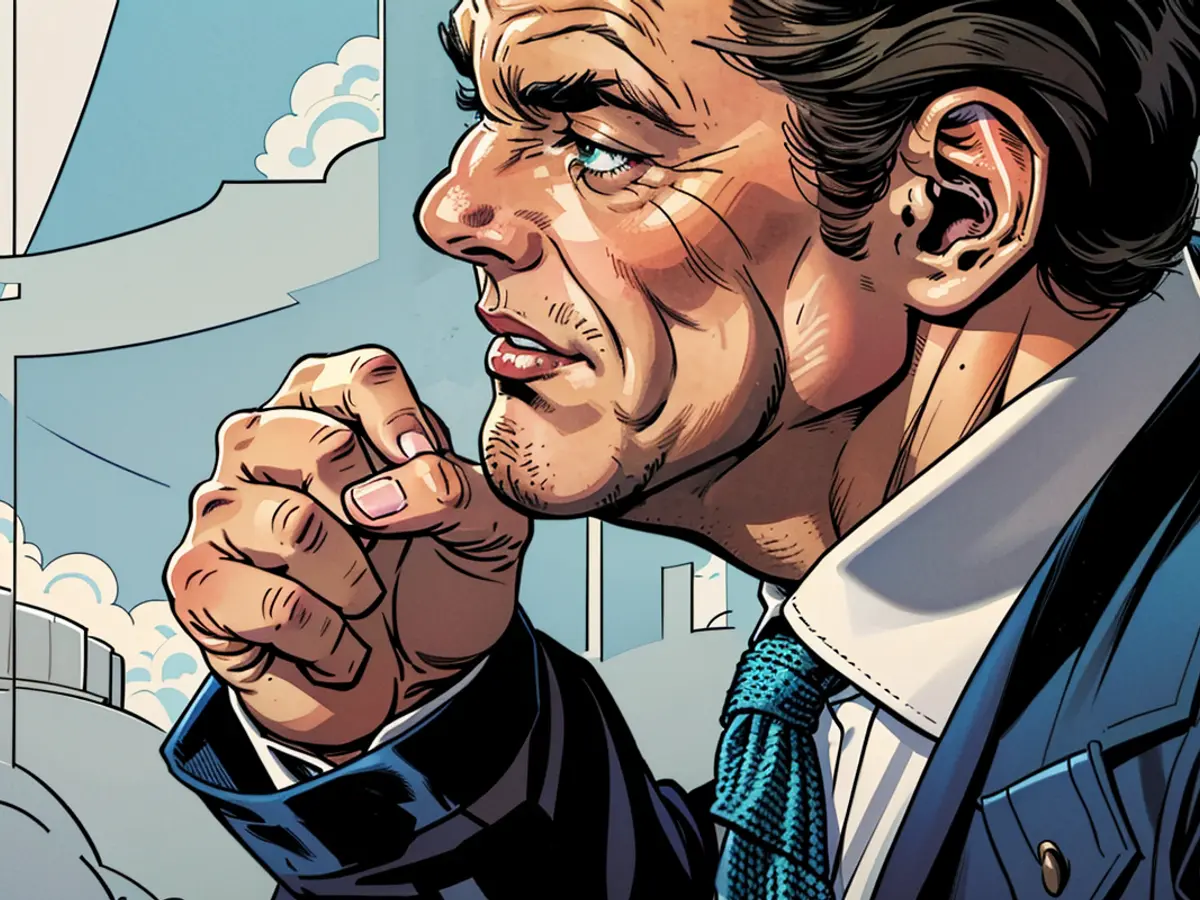- Scholz communicates to the Union: "The door remains open" or "The opportunity hasn't been fully squandered"
After the unsuccessful negotiations on migration matters between the government and the opposition, Chancellor Olaf Scholz (SPD) and the Union exchanged barbs in the Bundestag. During the budget week's general debate, Scholz pointed fingers at the CDU and CSU, labeling their migration policies as "talking points" and "dramatic performances." He also suggested continuing the negotiations, stating, "The door is not locked."
Previously, CSU parliamentary group leader Alexander Dobrindt criticized Scholz and the traffic light government for potentially jeopardizing social harmony in Germany with their migration policies. By failing to provide for a comprehensive rejection of asylum seekers at the German borders, Scholz and the traffic light government disregarded the concerns of the citizens, according to Dobrindt. "This refusal signifies a surrender to the strain on our neighborhoods, schools, and the safety situation in our country," he stated.
The traffic light coalition held conversations with the Union and the federal states last week and on Tuesday about a potential joint strategy on migration policies. Following the second round, CDU leader Friedrich Merz declared the talks a bust. According to him, the coalition is unable to execute comprehensive rejection of migrants at the German state borders. "With that, the endeavor to discover a common path has failed," Merz stated.
Scholz strongly condemned the talks' failure. "You've vanished," he said to Merz. On the contrary, his traffic light coalition has engineered "the most significant transformation in dealing with unauthorized migration." Scholz referred to the increased pace of deportations, the federal government's safety package to be discussed in the Bundestag the following day, and the planned joint European asylum system. "Don't whine, act, and get going. That's the motto," Scholz said.
Surprising Union tactic: Dobrindt speaks first
The general debate was kicked off surprisingly by CSU parliamentary group leader Alexander Dobrindt. Typically, the largest opposition party gets the initial speaking rights. Merz allowed Dobrindt to take the stage first, giving him the opportunity to respond to Scholz. In previous general debates, Scholz spoke after Merz and often assaulted the opposition leader without a chance to retaliate.
Dobrindt utilized his speech to lambast the traffic light coalition. "Not a coalition of progress, but a coalition of regression in this country," he said. "The public is tired of these traffic light excuses," Dobrindt criticized and added that the public has realized "whoever is in charge here, they will merely offer excuses. But that messes up security and social harmony in our country."
Scholz had already prepared for the general debate the previous evening. "Provincial theater production"
Scholz had already prepared for the general debate the previous evening at an SPD summer festival and slammed the Union for "deception and provincial theater production" in migration policies.
At present, the future remains uncertain. FDP leader Christian Lindner is advocating for another attempt at the highest level. Union faction leader Friedrich Merz should engage in negotiations with Chancellor Olaf Scholz (SPD), Economics Minister Robert Habeck (Greens), and Lindner personally, Lindner wrote on the X platform. "The Union's rejection of the refugee summit should not be the final word." He concluded, "We will tackle this problem together." Germany needs control and consequences in migration.
After the failure of migration negotiations, Scholz criticized the Union's migration policies as merely "talking points" and "dramatic performances." Regarding the future, FDP leader Christian Lindner suggested another attempt at high-level negotiations to address the migration issue, recognizing the need for control and consequences.
Following the unsuccessful negotiations, Dobrindt criticized the traffic light government for potentially endangering social harmony in Germany with their migration policies, labeling their approach as a "surrender to the strain" on various sectors.








